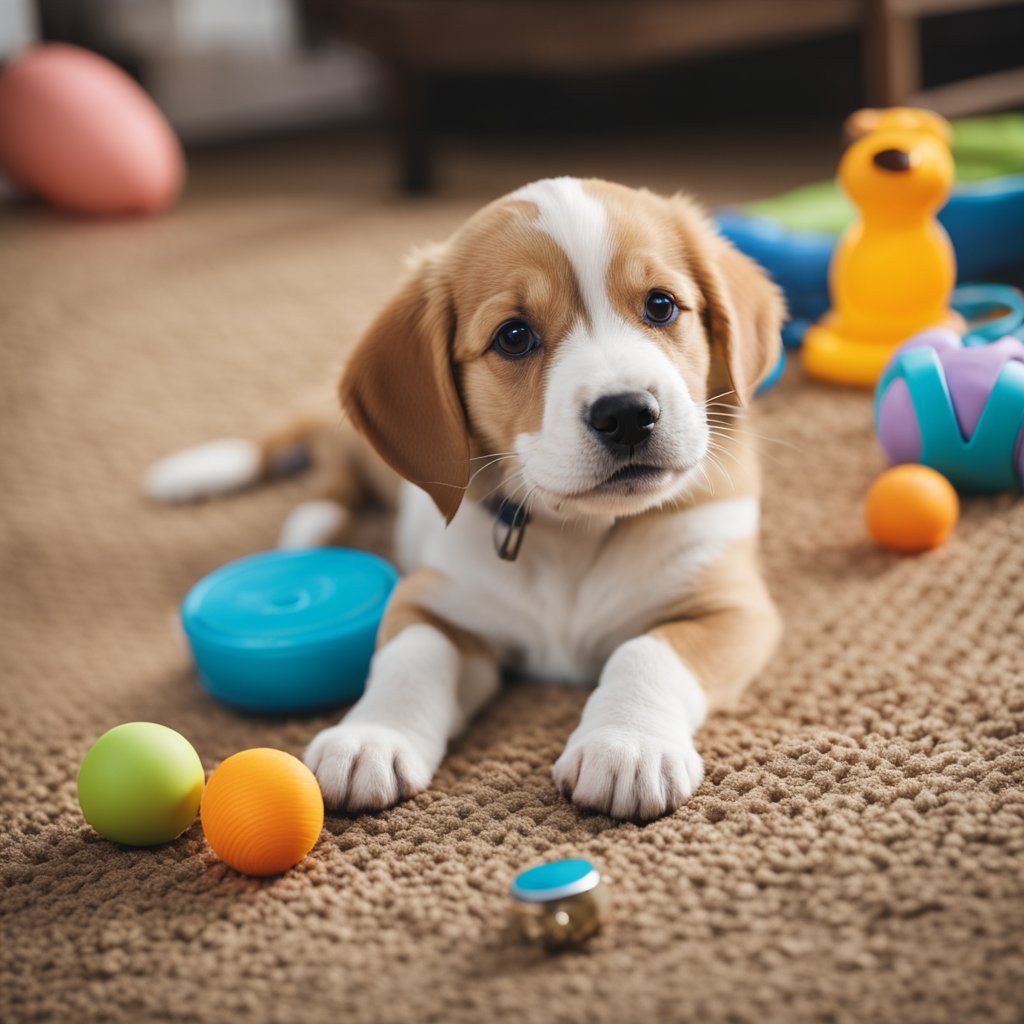Useful Training Tips for Your Puppy: Expert Advice for a Well-Behaved Pooch
Training a new puppy can be a challenging and rewarding experience. While it can be tempting to spoil your furry friend with treats and toys, it’s important to establish a strong foundation of training to ensure that your puppy grows up to be a well-behaved and obedient companion. Whether you’re a first-time puppy owner or a seasoned pro, there are plenty of useful training tips that can help you along the way.
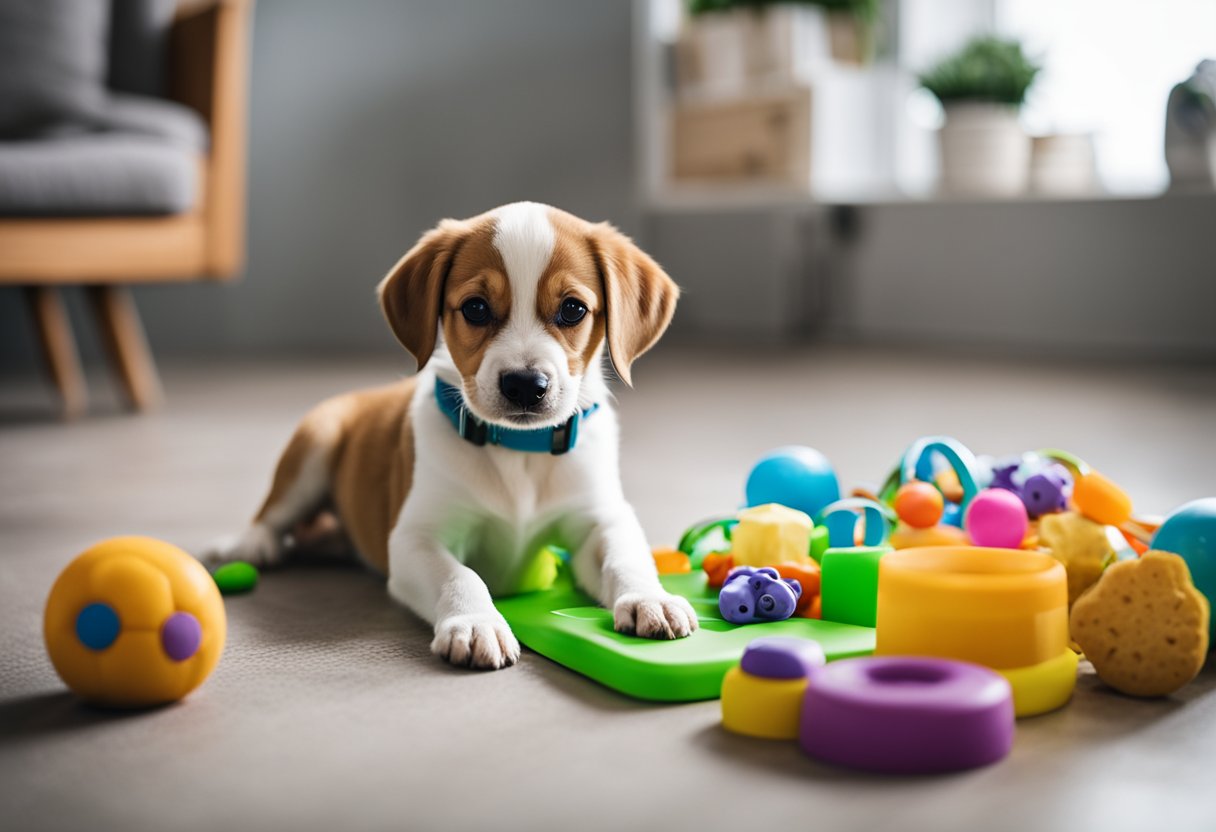
One of the most important aspects of puppy training is establishing a solid foundation of basic commands and behaviors. This includes teaching your puppy to sit, stay, come, and walk on a leash. By focusing on these fundamentals, you can help your puppy develop good habits and build a strong bond between the two of you. Additionally, it’s important to be consistent in your training approach and to reward good behavior with plenty of praise and positive reinforcement.
As your puppy grows and develops, you may want to explore more advanced training techniques, such as agility training or scent work. These can be a fun and engaging way to challenge your puppy and keep them mentally stimulated. However, it’s important to remember that every dog is different, and what works for one puppy may not work for another. By staying patient, consistent, and attentive to your puppy’s needs, you can help them become a happy, healthy, and well-behaved member of your family.
Key Takeaways
- Establishing a strong foundation of basic commands and behaviors is crucial for puppy training.
- Consistency and positive reinforcement are key to successful puppy training.
- Advanced training techniques can be a fun and engaging way to challenge your puppy and keep them mentally stimulated.
Establishing a Training Foundation
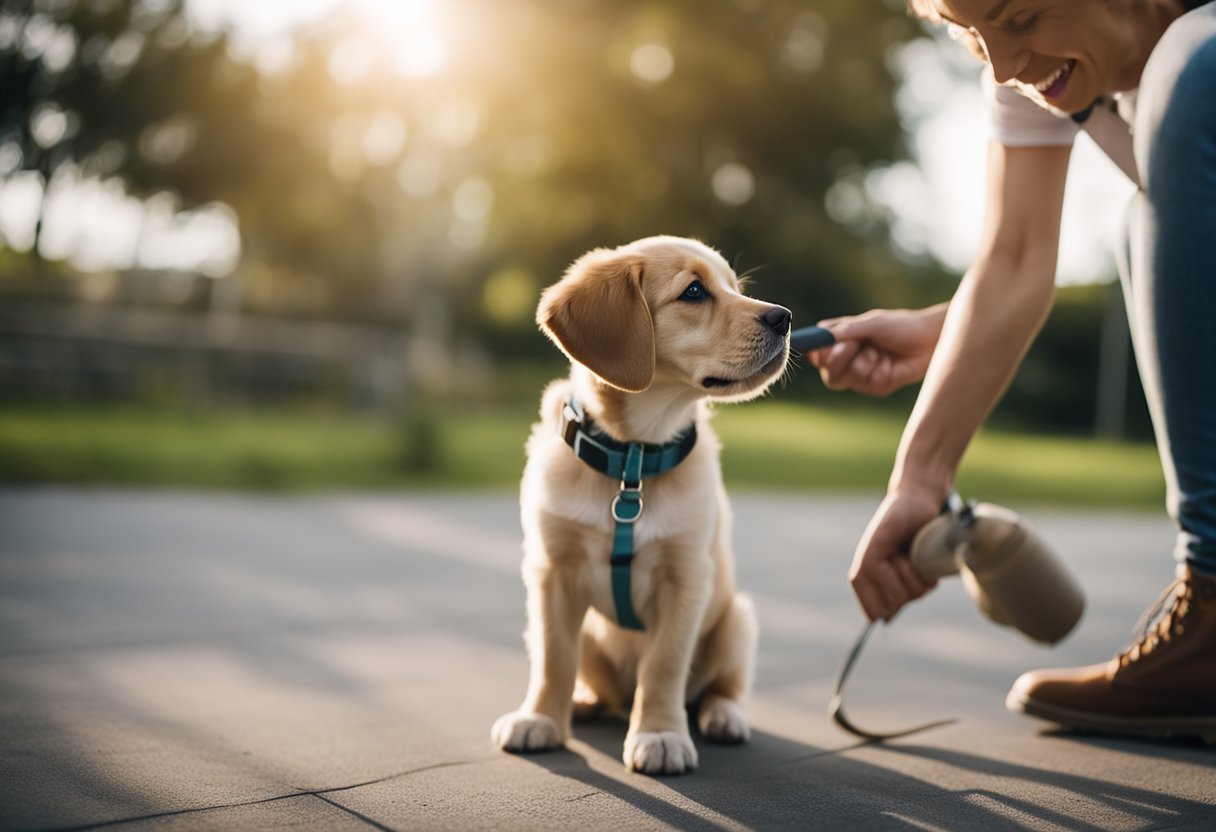
If you just got a new puppy, congratulations! You are in for a lot of fun and a lot of work. One of the most important things you can do for your new furry friend is to establish a solid training foundation. This will help ensure that your puppy grows up to be a well-behaved and happy dog.
Understanding Puppy Behavior
Before you start training your puppy, it’s important to understand their behavior. Puppies are like babies, they are curious and want to explore everything around them. They are also learning the rules of their new environment, and mistakes are a part of the learning process. Consistency in your commands, rewards, and routines helps your puppy understand what is expected of them.
Essential Commands
Teaching your puppy essential commands is an important part of establishing a training foundation. The most important commands to teach your puppy are “sit,” “stay,” “come,” and “down.” These commands will help keep your puppy safe and under control. Make sure to use positive reinforcement when teaching your puppy these commands. Reward them with treats, praise, and affection when they do something right.
House Training Basics
House training your puppy is another essential part of establishing a training foundation. Puppies need to go outside frequently to use the bathroom, especially after eating, drinking, playing, and sleeping. Take your puppy outside on a regular schedule and give them plenty of time to go. When they do go, make sure to reward them with praise and a treat. If your puppy has an accident inside, clean it up immediately and don’t punish them. Punishing your puppy for accidents will only confuse them and make house training more difficult.
Establishing a solid training foundation takes time and patience, but it is well worth the effort. By understanding your puppy’s behavior, teaching them essential commands, and house training them, you will be setting your puppy up for a lifetime of good behavior and happiness.
Advanced Training Techniques
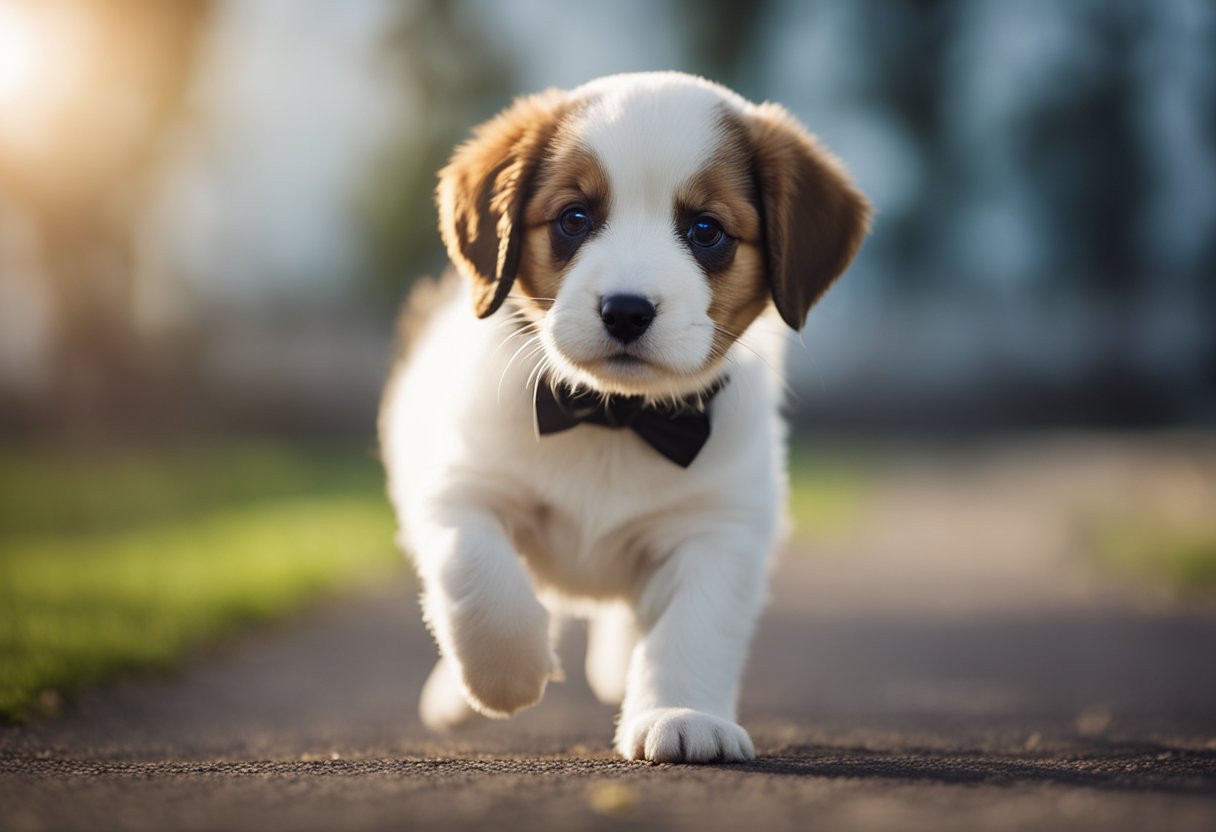
As your puppy grows and becomes more comfortable with basic training, it’s time to move on to more advanced techniques. These techniques will help your puppy become a well-behaved and obedient dog. Here are some advanced training techniques to consider:
Leash Training
Leash training is an essential skill to teach your puppy. It’s important to start leash training early on, so your puppy gets used to walking on a leash. Begin by attaching a leash to your puppy’s collar and letting them walk around with it on. Once your puppy is comfortable with the leash, start walking them on it. Use positive reinforcement techniques to reward your puppy when they walk nicely on the leash.
Socialization Skills
Socialization is crucial for puppies to learn how to interact with other dogs and people. Start socializing your puppy early on by taking them to puppy classes, dog parks, and other social events. Encourage your puppy to interact with other dogs and people in a positive way. Use positive reinforcement techniques to reward your puppy when they behave well around others.
Crate Training
Crate training is an excellent way to teach your puppy to be comfortable in their own space. Start by introducing your puppy to the crate and letting them explore it. Once your puppy is comfortable with the crate, start putting them in it for short periods of time. Use positive reinforcement techniques to reward your puppy when they go into the crate and behave well inside it.
Addressing Behavioral Issues
Some puppies may develop behavioral issues, such as excessive barking, chewing, or digging. It’s important to address these issues early on to prevent them from becoming more severe. Use positive reinforcement techniques to train your puppy to stop unwanted behaviors. For example, if your puppy is chewing on furniture, redirect them to a chew toy and reward them when they chew on it instead.
By using these advanced training techniques, you can help your puppy become a well-behaved and obedient dog. Remember to use positive reinforcement techniques and be patient with your puppy as they learn. With time and effort, your puppy will become a loyal and well-mannered companion.
Resources
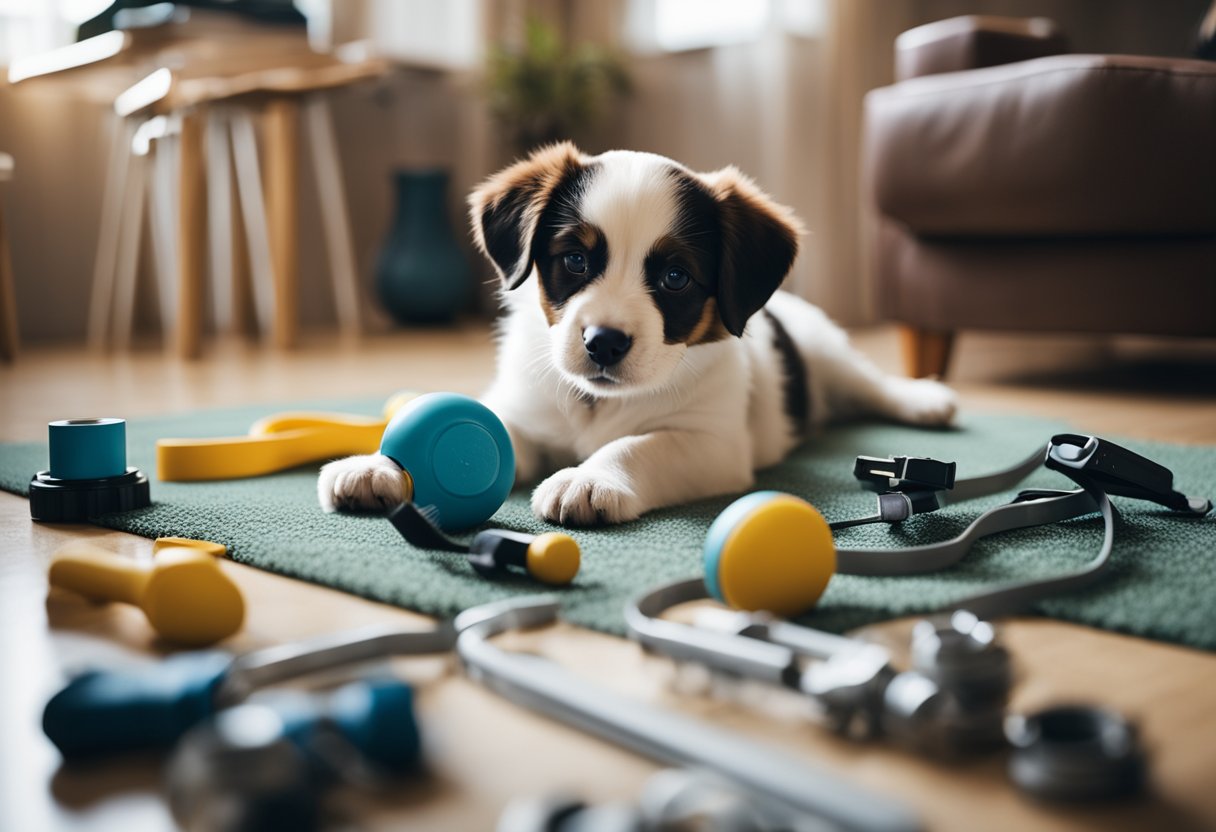
When it comes to training your new puppy, there are many resources available to help you along the way. Here are some useful resources that you can use to improve your puppy’s training:
1. Online Training Guides
There are many online training guides available that can help you train your puppy. These guides can provide you with step-by-step instructions on how to train your puppy, as well as tips and tricks to make the process easier. Some popular online training guides include TrainPetDog.com and PeopleLovingAnimals.com.
2. American Kennel Club (AKC)
The American Kennel Club (AKC) is a great resource for all things related to dogs, including training. The AKC provides a wealth of information on their website, including articles, videos, and online courses. They also offer in-person training classes for those who prefer a more hands-on approach.
3. Rover.com
Rover.com is a website that connects pet owners with dog sitters and dog walkers. They also have a section on their website dedicated to dog training. This section includes articles and videos on topics such as potty training, crate training, and obedience training.
4. Local Dog Trainers
If you prefer a more personal approach to training your puppy, consider hiring a local dog trainer. A professional dog trainer can work with you and your puppy one-on-one to address specific training needs. To find a local dog trainer, check with your veterinarian or search online for trainers in your area.
Remember, every puppy is different, and what works for one puppy may not work for another. Don’t be afraid to try different training methods until you find what works best for you and your puppy. With patience, consistency, and the right resources, you can train your puppy to be a well-behaved and obedient companion.
Conclusion
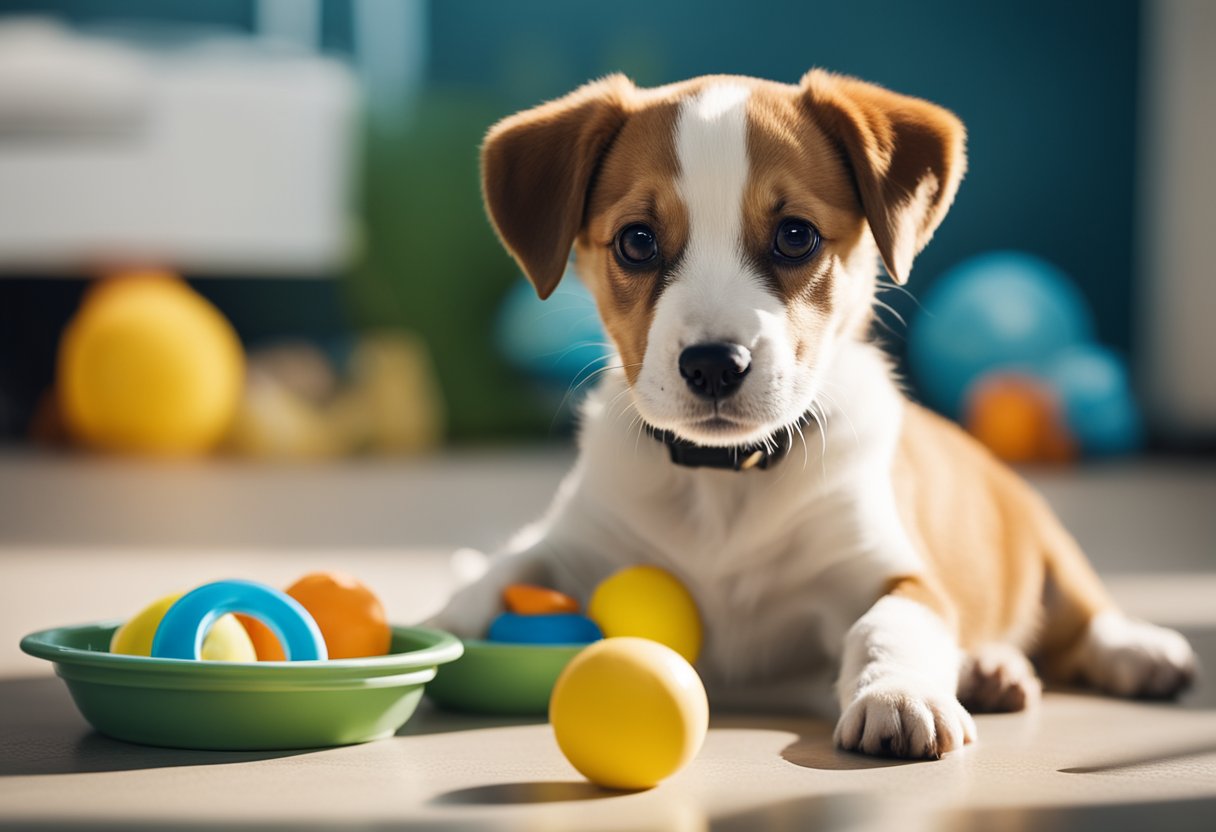
Congratulations on taking the first step towards training your new puppy! Remember, training is a process that requires patience, consistency, and a positive attitude. By following the tips outlined in this article, you can set your puppy up for success and build a strong bond with them.
To recap, some essential puppy training tips include:
- Starting training early to establish good habits and prevent bad ones from forming.
- Using positive reinforcement techniques such as treats, praise, and playtime to motivate your puppy.
- Consistency is key! Use the same commands and rewards every time you train.
- Socializing your puppy with other dogs, people, and environments to prevent fear and aggression.
- Understanding your puppy’s body language and vocal cues to communicate effectively.
Remember, every puppy is unique, and training methods may need to be adjusted to fit their individual needs. Don’t hesitate to seek professional help if you encounter any difficulties.
With time, patience, and plenty of love, your puppy will grow into a well-behaved, happy, and healthy adult dog. Good luck with your training journey!
Frequently Asked Questions
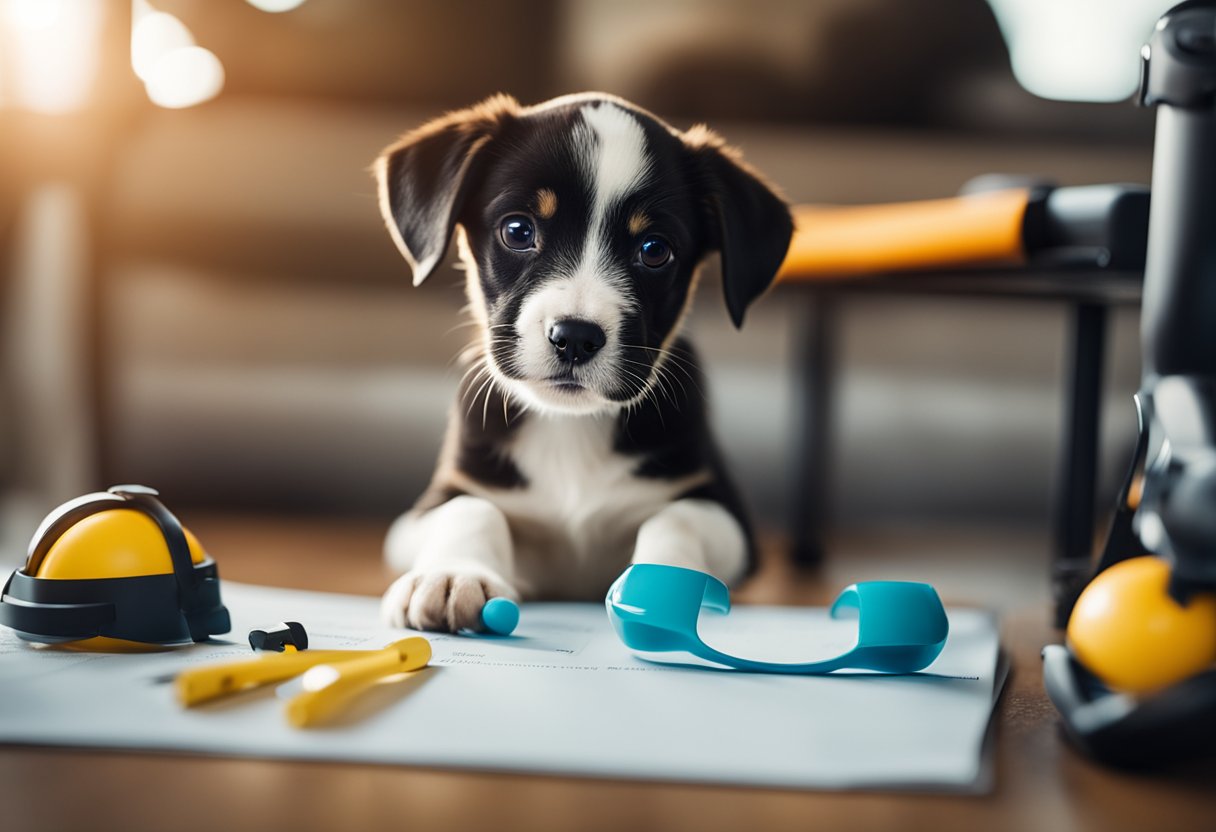
What is the first thing you should teach a puppy?
The first thing you should teach a puppy is their name. This will help them learn to respond to you when you call them. You can also start to teach them basic commands such as “sit” and “stay”.
What are the most important commands to train a puppy?
The most important commands to train a puppy are “sit”, “stay”, “come”, “down”, and “heel”. These commands will help you control your puppy and keep them safe.
How can you effectively housebreak a puppy?
To effectively housebreak a puppy, you should establish a routine for taking them outside to go to the bathroom. Take them out first thing in the morning, after meals, and before bed. Praise them when they go outside and be consistent with your training.
What is a good training schedule for a puppy by age?
A good training schedule for a puppy by age is to start with basic commands such as “sit” and “stay” at around 8 weeks old. As they get older, you can start to teach them more advanced commands and tricks. It’s important to be patient and consistent with your training.
How do you train a puppy to obey basic commands?
To train a puppy to obey basic commands, use positive reinforcement such as treats and praise. Start with one command at a time and be consistent with your training. Use the same command word and hand signal every time.
What are some essential tips for training a puppy at home?
Some essential tips for training a puppy at home include using positive reinforcement, being patient and consistent, and establishing a routine. It’s also important to socialize your puppy and expose them to different people, places, and things.
